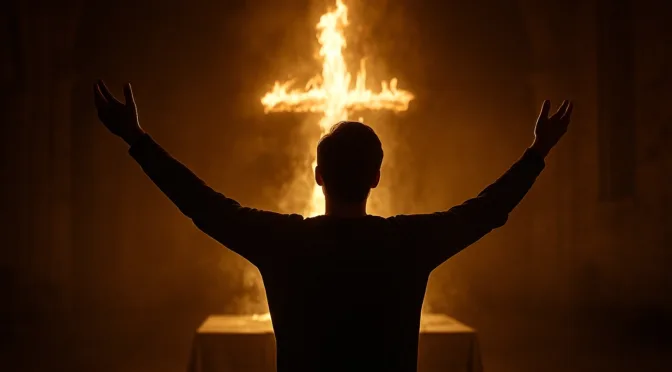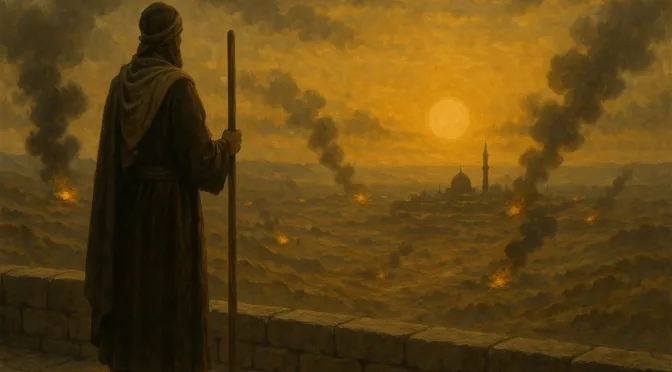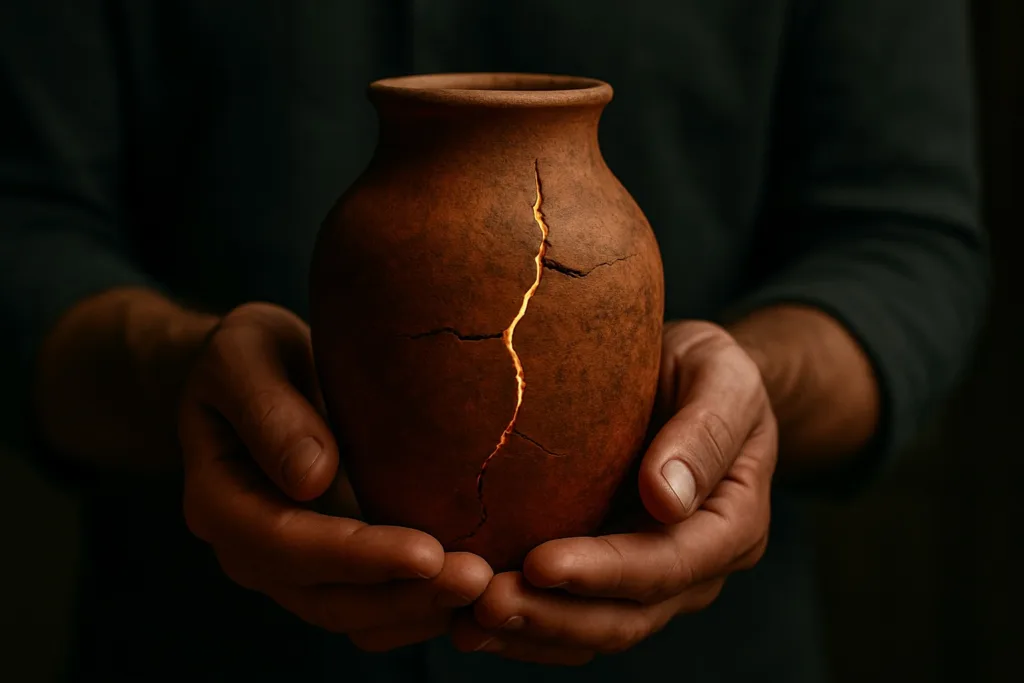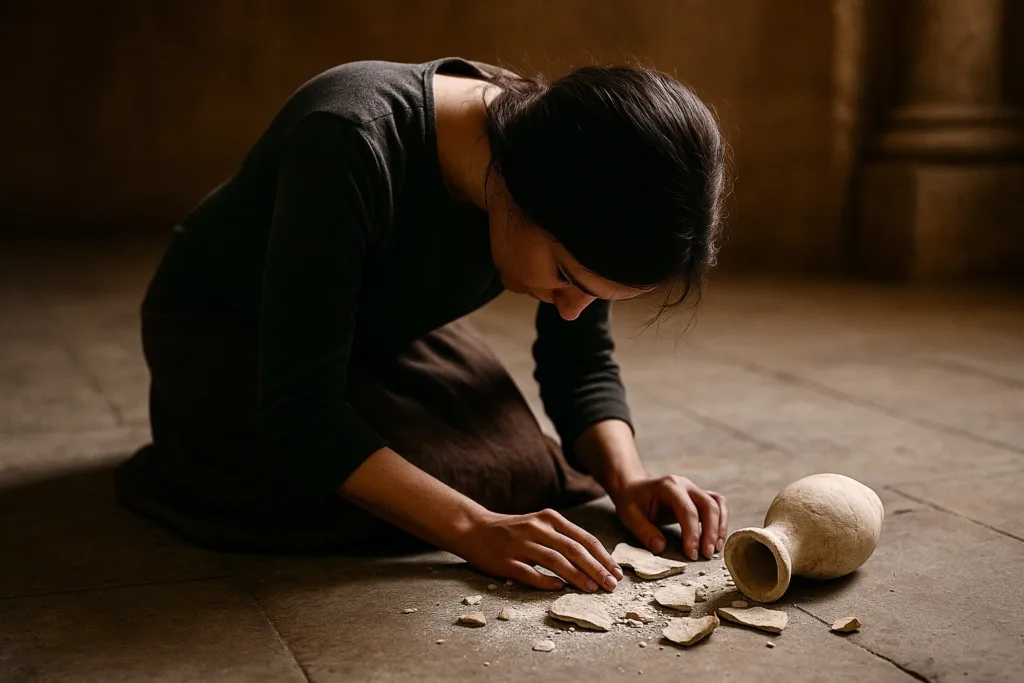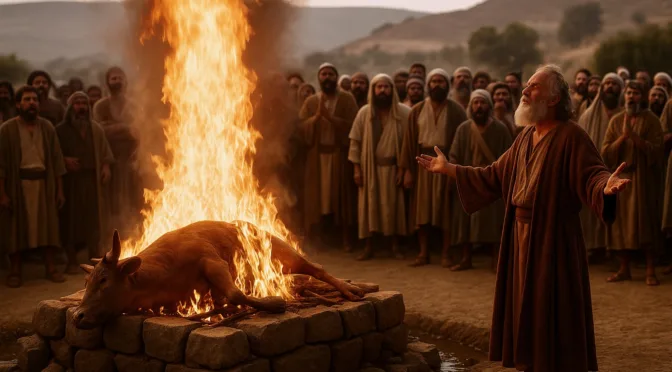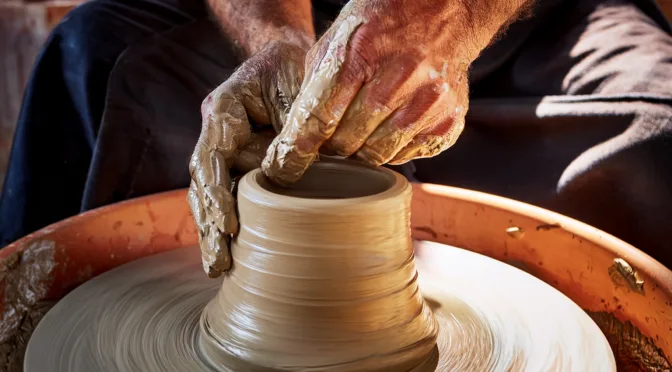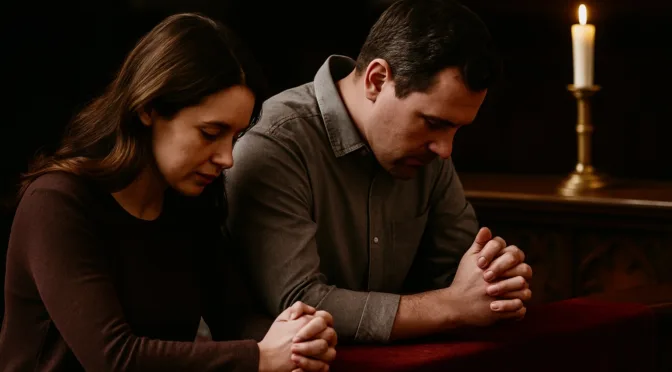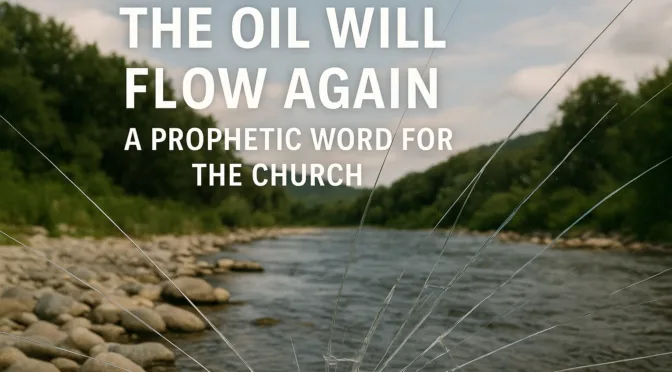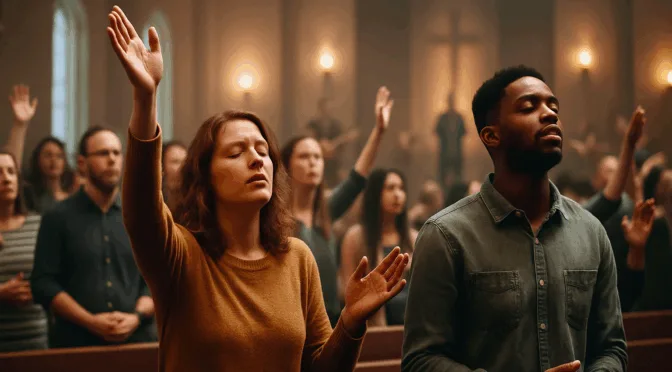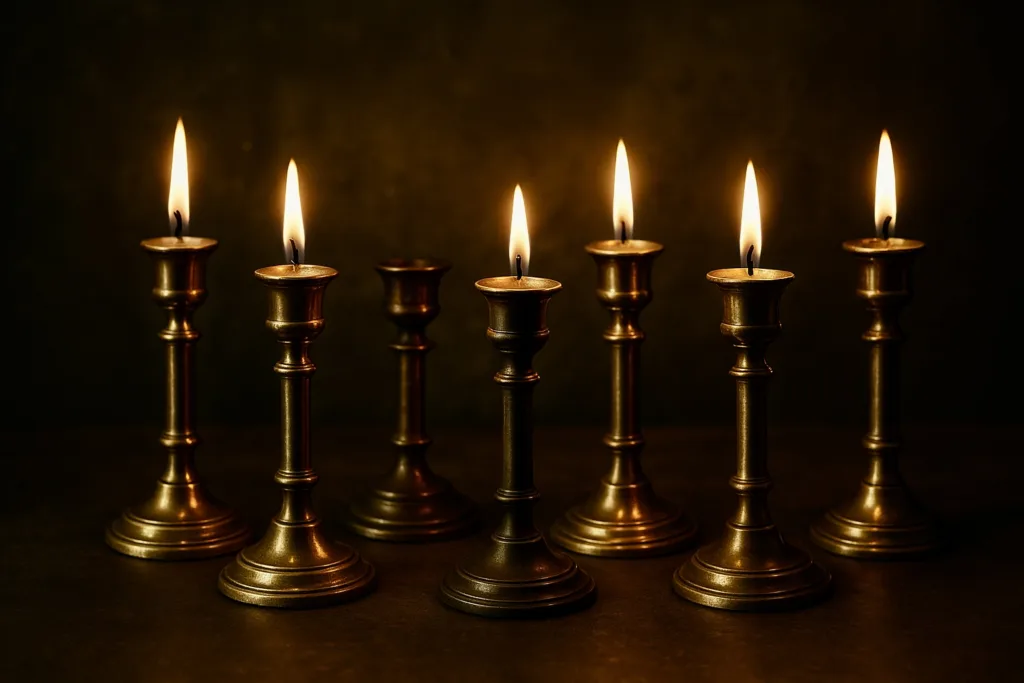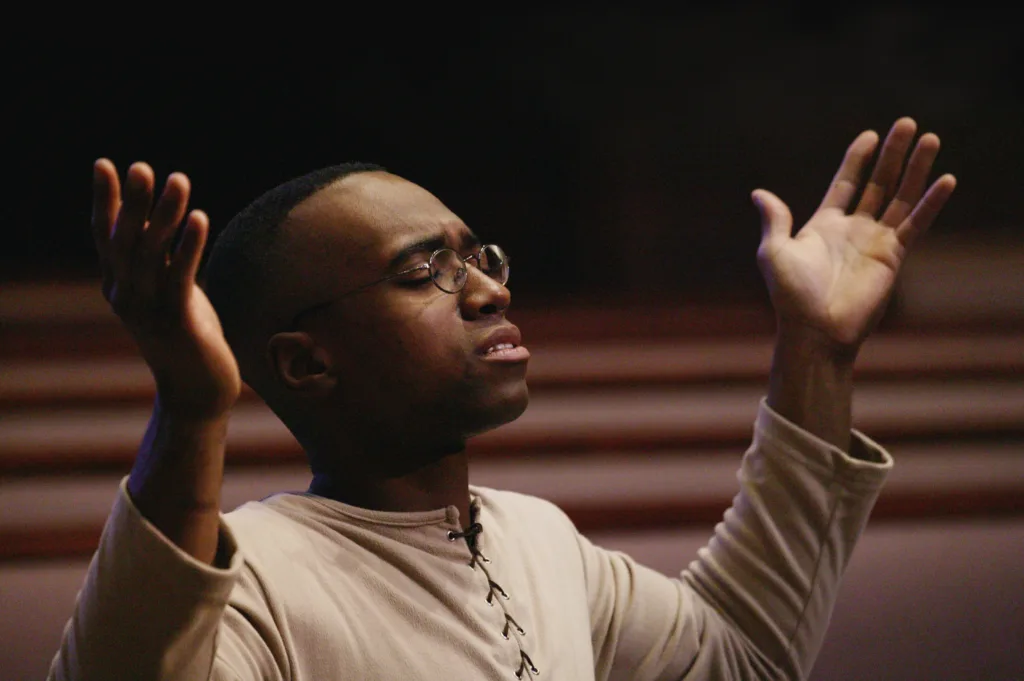“Hate evil, love good, and establish justice in the court [of your city’s gate]! Perhaps the Lord God of hosts will be gracious to the remnant of Joseph.”
—Amos 5:15 (AMP)
Beloved, we have arrived at a point in Church history where we must confront an inconvenient truth: you cannot love God and be neutral toward sin. To love God is to embrace what He loves and to despise what He hates. Anything less is compromise, and compromise is not the soil in which revival grows.
In our hunger for grace, we have softened our stance against evil. We whisper warnings when God shouts them. We stroke the edges of darkness rather than calling it what it is. But the Lord, whose name is holy, still burns with a fierce hatred for sin—not because He is cruel, but because He is love. Love abhors all that destroys. Therefore, if we are to walk as Yeshua walked, we must awaken to His holy hatred.
The Holy Divide: What Love Demands
To love purity is to loathe impurity. To love truth is to grieve over lies. This is not double-mindedness—it is the necessary result of a sanctified affection. David cried, “From Your precepts I get understanding; Therefore I hate every false way” (Psalm 119:104, NASB). Not tolerate. Not minimize. Hate.
This is not a hate born of pride or cruelty. It is the righteous hatred of Christ Himself, who Scripture says was anointed above His companions precisely because He loved righteousness and hated wickedness (Hebrews 1:9). It is the burning purity of God that pours oil on His people—not charisma, not comfort, not conformity, but consecration.
We do not get to pick which evils are worth hating. Sin is sin, whether it sits in the heart or walks in the streets. Whether it is lust in the pew, corruption in the court, or deceit in the pulpit—all of it grieves the Spirit. The cross was not partial in its sentence. Yeshua did not bleed selectively. And the Spirit will not dwell in a temple where evil is excused.
The Gap Between Anointing and Affection
Why do we cry out for revival and yet see no rain? Why do we pray for the fire to fall, yet keep our altars wet with compromise? It is not because God is unwilling. It is because our affections are divided.
“Do not love the world nor the things in the world. If anyone loves the world, the love of the Father is not in him” (1 John 2:15, NASB). The anointing follows affection. You cannot embrace holiness with one arm while hugging rebellion with the other.
It is our imperfection in loving the good and hating the evil that restricts the outpouring of the Holy Spirit. God does not give His glory to the half-hearted. If we want to be full of the Spirit, we must be emptied of what grieves Him. We must be willing to lay aside not just bad things, but lesser things—even things others around us still cling to. This is the cost of the oil. But oh, the reward is worth it.
The Dangerous Comfort of Niceness
Our nation has known unprecedented religious freedom. We build churches without resistance. We broadcast sermons without censorship. But let us not mistake absence of persecution for the favor of God. Sometimes it means we have become too tame to be threatening.
“Woe to you when all people speak well of you, for so their fathers used to treat the false prophets” (Luke 6:26, AMP). The world has not hated us because we have not given it a reason to. We have chosen the easier road. The applause of man has become louder than the voice of God.
We are too quick to excuse sin, to dilute conviction in the name of love. But beloved, this is not the love of Christ. The love of Christ was never silent in the face of wickedness. It flipped tables. It rebuked the religious. It wept over the lost. It bled for the sinner but never approved the sin.
To love like Jesus is to be misunderstood. It is to be a nuisance to the world and a fragrance of life to the remnant. It is to pursue righteousness even when it costs you reputation, comfort, and standing. Vance Havner was right—we are so busy running for office that we have forgotten to stand for truth.
The Narrow Way: Love That Separates
“Whoever pursues righteousness and loyalty finds life, righteousness, and honor” (Proverbs 21:21, NASB). Notice that the path to life is not through appeasement. It is through pursuit. Righteousness must be chased with abandon.
If we are to be the Bride of Christ, we must look like Him. And the Lamb is pure. He is holy. His garments are not stained with compromise. Those who follow Him must wash their robes in His blood and forsake the harlotries of this world.
We must recover our disgust for sin—not as self-righteousness, but as spiritual sanity. Sin is not a lifestyle choice. It is death. It is rebellion. It is the very thing that pierced the hands of our Lord. To tolerate it is to make peace with the nails.
Let us not be afraid to be counted among the fools for Christ. Let us reject the fear of being labeled “intolerant,” “radical,” or “legalistic.” The only label that matters is this: “Well done, good and faithful servant.” That label does not come cheap. It is forged in the fires of obedience and secured in a heart that loves God more than it loves comfort.
Justice Begins at the Gate
Amos cried out not just for private piety, but for public justice. “Hate evil, love good, and establish justice in the court [of your city’s gate]!” (Amos 5:15, AMP). The revival God seeks is not one of emotion alone, but of reformation.
If we tolerate injustice in our courts, dishonesty in our systems, and corruption in our dealings, we mock the God of righteousness. The Church must again become a voice for justice—not partisan justice, but Kingdom justice.
Righteousness is not quiet. It speaks. It acts. It stands at the gate and says, “This is wrong,” even when doing so is costly. Revival that never touches the courtroom, the classroom, or the boardroom is not the revival of the prophets—it is a counterfeit.
A Prayer for Sanctified Affection
“Sanctify them in the truth; Your word is truth” (John 17:17, NASB). This is the cry of every heart that longs for more of God. Not more knowledge, not more comfort—but more of Him.
And to have more of Him, we must love what He loves and hate what He hates.
Beloved, this is not a call to become bitter, angry watchdogs. This is a call to become blazing altars. Let the fire of God burn in you until it consumes every unclean thing. Let your affections be purified until you no longer negotiate with sin but grieve over it. Let your heart be so aligned with Heaven that every compromise feels like betrayal.
When that happens, the oil will come. The power will come. The revival will come.
But until then, may our prayer be:
Lord, I want to receive more of the Holy Spirit’s goodness in my life,
yet I recognize today that I still cling to things You hate
and resist that which You love.
Sanctify my affections, that I may experience more and more of You.
Amen.
⸻



